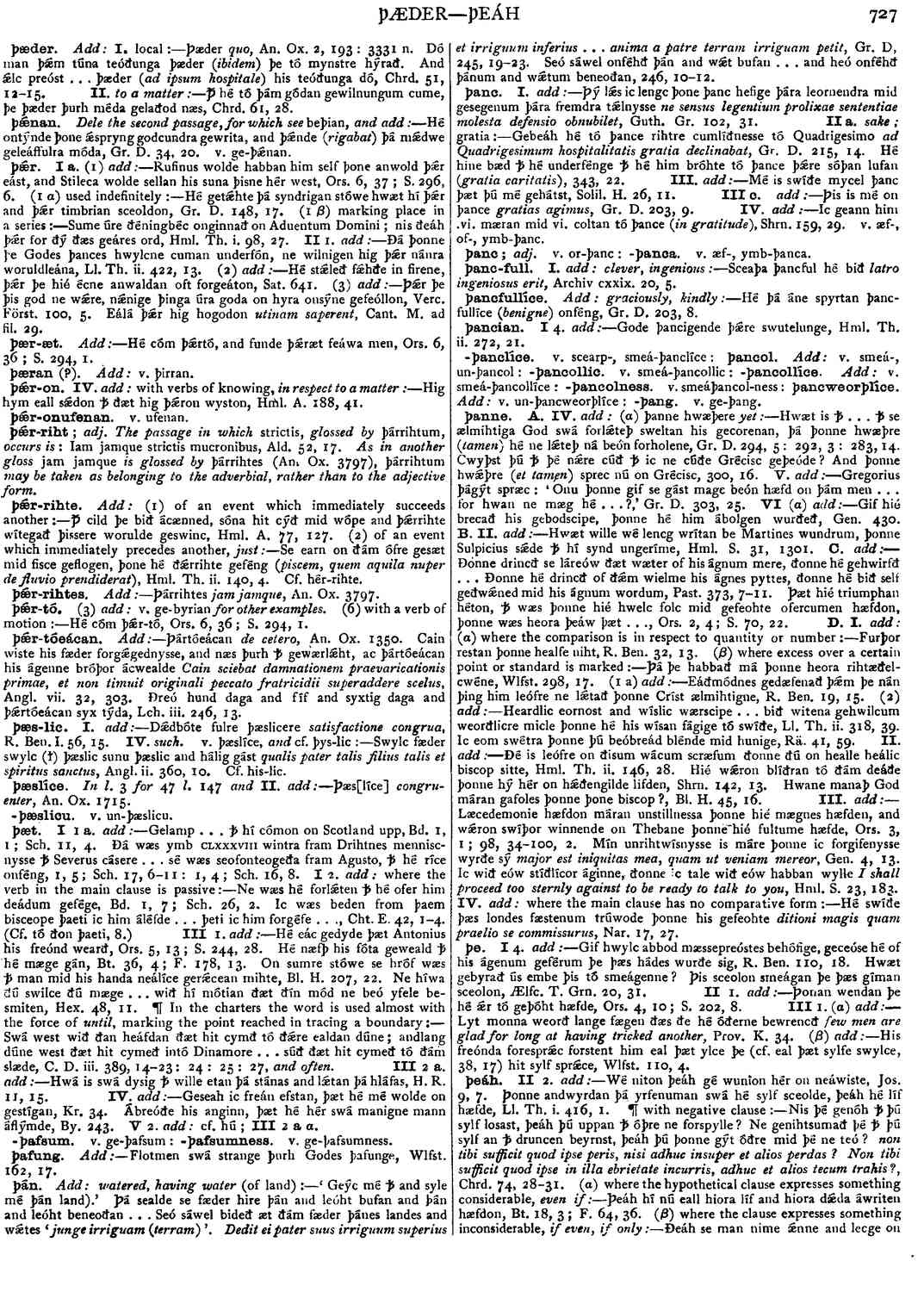þæt
-
Gelamp ... ꝥ hí cómon on Scotland upp,
- Bd. 1, 1; Sch. 11. 4.
-
Ðá wæs ymb clxxxviii wintra fram Drihtnes menniscnysse ꝥ Severus cásere ... sé wæs seofonteogeða fram Agusto, ꝥ hé ríce onféng,
- 1, 5; Sch. 17, 6-11: 1, 4; Sch. 16, 8.
-
Ne wæs hé forlǽten ꝥ hé ofer him deádum gefége,
- Bd. 1, 7; Sch. 26, 2.
-
Ic wæs beden from þaem bisceope þaeti ic him áléfde ... þeti ic him forgéfe ...,
- Cht. E. 42, 1-4. (Cf. tó ðon þaeti, 8.)
-
Hé eác gedyde þæt Antonius his freónd wearð,
- Ors. 5, 13; S. 244, 28.
-
Hé næfþ his fóta geweald ꝥ hé mæge gán,
- Bt. 36, 4; F. 178, 13.
-
On sumre stówe se hróf wæs ꝥ man mid his handa neálíce gerǽcean mihte,
- Bl. H. 207, 22.
-
Ne híwa ðú swilce ðú mæge ... wið hí mótian ðæt ðín mód ne beó yfele besmiten, Hex. 48, 11. ¶ In the charters the word is used almost with the force of
until,
marking the point reached in tracing a boundary :-- Swá west wið ðan heáfdan ðæt hit cymð tó ðǽre ealdan dúne; andlang dúne west ðæt hit cymeð intó Dinamore ... súð ðæt hit cymeð tó ðárii slæde,- C.D. iii. 389, 14-23: 24: 25: 27, and often.
-
Hwá is swá dysig ꝥ wille etan þá stánas and lǽtan þá hláfas,
- H.R. 11, 15.
-
Geseah ic freán efstan, þæt hé mé wolde on gestígan,
- Kr. 34.
-
Ábreóðe his anginn, þæt hé hér swá manigne mann áflýmde,
- By. 243.
Bosworth, Joseph. “þæt.” In An Anglo-Saxon Dictionary Online, edited by Thomas Northcote Toller, Christ Sean, and Ondřej Tichy. Prague: Faculty of Arts, Charles University, 2014. https://bosworthtoller.com/59383.
Checked: 0